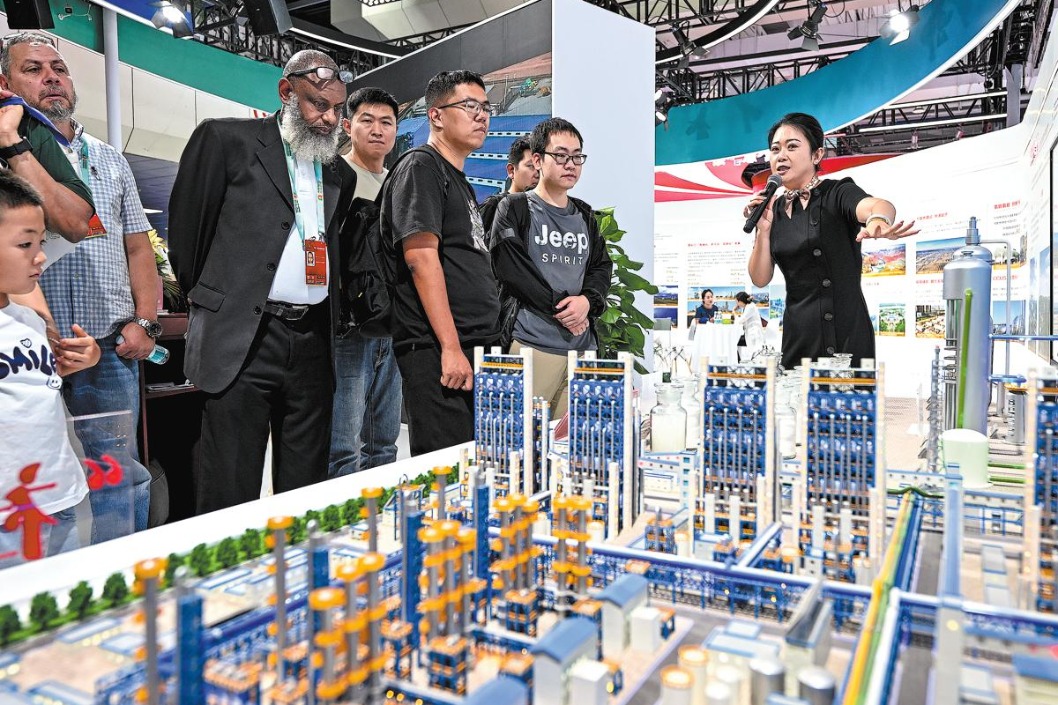AI curbs show Biden's rejection of cooperation: China Daily editorial


Looking back over the past four years, from its first sit-down with the Chinese side in Anchorage in March 2021, the Joe Biden administration has shown no qualms about carrying out its China policy from "a position of strength".
That explains why, even though it has repeatedly claimed that cooperation is one of the three pillars of its China policy, it has never worked with Beijing to leverage the strength of that pillar as a stabilizer of relations. Instead, it has focused on continually reinforcing the other two pillars, competition and confrontation. Artificial intelligence is a good example of how the Biden administration has rejected cooperation in favor of competition and confrontation, although it has gone through the motions to make it look like it is cooperating with China on AI.
As agreed by the two heads of state in their San Francisco summit in November 2023, the US and China held the first meeting of intergovernmental dialogue on AI in Geneva in May. The two sides exchanged views on the technological risks posed by AI, global governance of the technology and its use, as well as other issues of respective concern. They also agreed to promote the sustainable development of artificial intelligence on the basis of safety, reliability and controllability. Later in June, carrying forward that consensus, the second China-US Track 1.5 Dialogue took place in Beijing, during which participants from both countries reached a consensus to further deepen their cooperation in the field of AI.
Yet, on Monday, one week before it leaves office, the administration unveiled sweeping export restrictions on artificial intelligence semiconductors and model parameters, with China being the main target. The US' restrictive measures on AI chip exports, which extend its long-arm jurisdiction by setting obstacles in the way of normal trade between third parties and China, not only seriously hinder normal economic and trade exchanges between countries, affect global scientific and technological innovation, and damage the interests of companies in various countries around the world, but also divide the world on AI, pushing the technology to evolve in a direction opposite to what it agreed with China in Geneva.
No wonder many US high-tech companies and industry organizations have clearly expressed their dissatisfaction with the move through various channels, arguing that the measures have been hastily formulated and issued without sufficient discussion. Reportedly Nvidia CEO Jensen Huang is embarking on a trip to China this week, a visit apparently intended to figure out how to sidestep the Biden administration's latest AI chip curbs.
Beijing has responded to the move by adding seven US companies to the unreliable entity list on Tuesday. Although the Chinese measures are not equivalent in scale and consequence to the US moves, they show Beijing's firm resolve to safeguard its core interests.
The development of AI is a double-edged sword. While it can be a boon for social progress and international security, it can also aggravate unfairness and injustice and be a threat to peace and stability. Unlike the US, which is seeking to build a high fence around the technology to ensure it serves only itself, China is committed to ensuring that artificial intelligence technology is beneficial to humanity, safe and fair, and always developing in a direction that is conducive to the progress of human civilization.
China therefore supports strengthening global governance of artificial intelligence and advocates giving full play to the main role of the United Nations to form a global artificial intelligence governance framework and standards with a broad consensus. China has always believed that the development of AI should not be a tool for competition and confrontation between countries, but a means of cooperation for the benefit of the whole of humankind.
At their meeting in Lima, the Chinese and US leaders affirmed the need to address the risks of AI systems, to improve AI security, and to enhance international cooperation on AI, stressing that a prudent and responsible attitude must be adopted in developing AI technology.
It is to be hoped that the incoming US administration realizes that it is in a position of strength for humankind to ensure that what is essentially alien intelligence is used for good and for the good of all.































